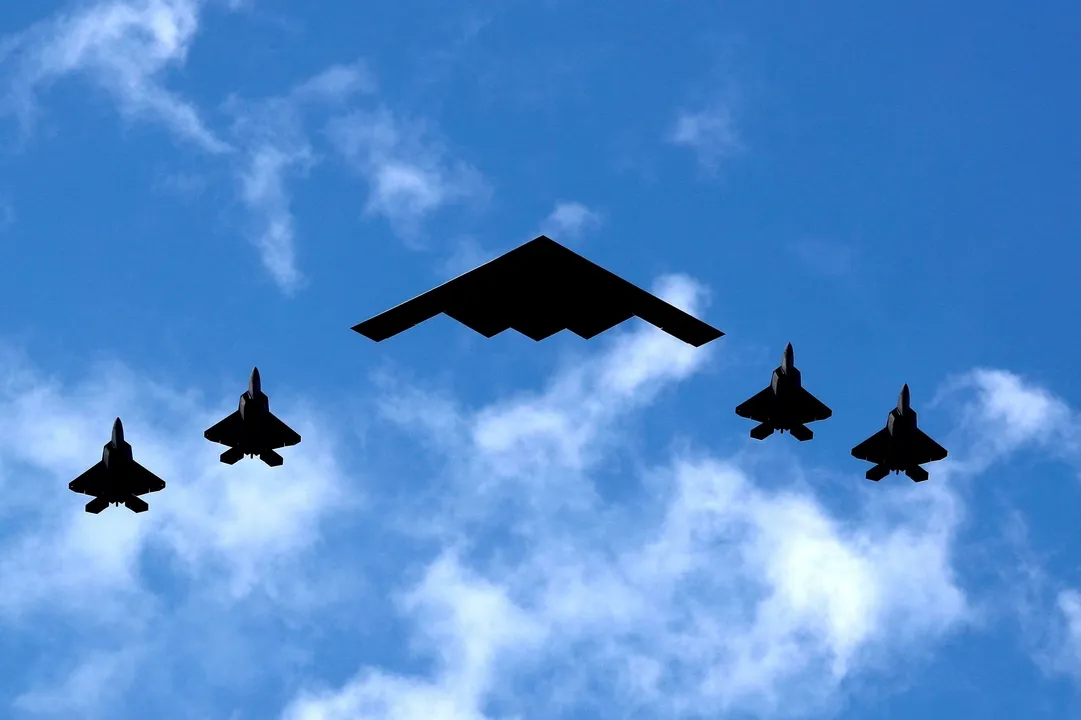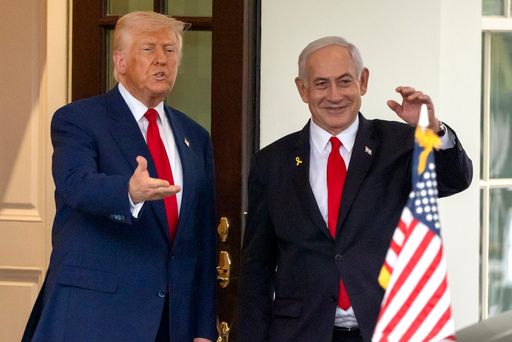Washington, DC — The Make America Great Again (MAGA) movement is built on force — force of personality, of loyalty, of slogans. But in the shadow of war stretching across the Middle East, that unity appears to be cracking.
If US President Donald Trump decides to commit American firepower to Israel's confrontation with Iran, a deep ideological rift in his coalition — already visible in angry cable show rants and clashing congressional statements — could rupture into a full-on political split.
That risk is now front and centre, experts warn.
"The split is serious," Paul M. Collins, Jr., a professor of legal studies and political science at the University of Massachusetts Amherst, told TRT World.
"Although I don't think it will be enough to fracture Trump's coalition before the mid-term elections next year."
The stakes are geopolitical, but the tremors are ideological.
What began as talk of Israel's unilateral strike on Iran's civilians and nuclear sites, long suspected by Tel Aviv of housing uranium enrichment, now risks drawing in Washington.
Trump's foreign policy approach is known to blend bold contrasts in its messaging: railing against "stupid endless wars" one day, then threatening his adversaries the next.
But his base — once reliably in sync — is no longer marching in complete formation.

US President Donald Trump held a Situation Room meeting in the White House on Wednesday to discuss US military options in Iran. (Photo: Reuters)
On one side of this debate are the likes of Senator Lindsey Graham, US Ambassador to Israel Mike Huckabee, and right-wing media figures like Mark Levin and Sean Hannity.
They see Israel's campaign as a historic window, a chance to strike Iran's nuclear infrastructure hard and possibly topple the current establishment in Tehran.
On the other side is the non-interventionist core of Trumpism, represented by influential voices such as Tucker Carlson, Steve Bannon, Matt Gaetz, and Representative Marjorie Taylor Greene, among others, who argue that even indirect US involvement would betray the very promise that brought Trump to power in the first place: no more foreign wars.
"This (Iran) is one of the most ancient civilisations in the world, okay, with 92 million people. This is not something you play around with. You have to think this through at this level, and the American people have to be on board. You can't just dump this on them," Bannon told reporters in Washington on Wednesday.
And Trump? He's caught mid-stride.
"Trump seems to believe that Iran is very close to being a nuclear power," Collins said.
"I think this is motivating him to take a more hawkish approach to the Middle East."
But as the rhetoric escalates, so too does the backlash.
"Some members of Congress have already moved to limit Trump's ability to enter the conflict without a Congressional declaration of war," Collins said.
Thomas Massie, R-Kentucky, and Ro Khanna, D-California, have introduced a resolution to block any US involvement in an attack on Iran without Congressional approval.
"This is not our war," Massie wrote on X. "Even if it were, Congress must decide such matters according to our Constitution."
Collins added, "You’ll see the anti-war coalition grow louder if the US becomes more engaged."
The tensions aren't just theoretical.
Inside Trump's cabinet, his Director of National Intelligence, Tulsi Gabbard, recently testified that there was no definitive US intelligence showing a nuclear bomb was in production by Iran.
The president was livid.
"I don't care what she said," Trump snapped at reporters when asked about her comments. "I think they were very close to having a weapon."

Split wide open
David Levine, a historian at UC Law San Francisco, and someone who watches US foreign policy closely, told TRT World that, "If and when Trump commits the US to attack Iran's nuclear sites, we might see the rift (in his MAGA base) open wider."
He sees Trump's posture as classic brinkmanship: dialling up threats not necessarily to attack, but to pressure Tehran back to negotiations.
"This may also be an attempt to float the possibility that the US will take extreme action in the hopes that the threat will bring Iran to the bargaining table," Levine added.
Tehran is well-known to have various regional militias, missile systems, and a history of asymmetric retaliation.
"Iran might try to attack US assets in places near the Persian Gulf," Levine said. "But I have no idea how many missiles they have after sending so many towards Israel."
Meanwhile, US Vice President JD Vance has tried to navigate a path between the warring factions of the American right.
In a carefully worded post on social media, Vance said Trump "may decide he needs to take further action to end Iranian enrichment" but warned against "foreign entanglement after the last 25 years of idiotic foreign policy."
Yet even Vance's nuanced approach is beginning to fray at the edges.
Trump's comment on Wednesday — "I may do it, I may not do it" — carried the familiar cadence of strategic ambiguity.
And that is now quietly deepening the divide.
According to US media reports, Netanyahu's briefings in recent weeks have hardened Trump's instincts. But the ghost of Iraq — and the risk of political blowback — still haunts the West Wing.
A new Economist/YouGov poll finds 53 percent of Trump's voters oppose joining Israel's strikes, underlining a clear MAGA preference for staying out.
That sentiment echoes broader public opinion. A recent survey by the Chicago Council on Global Affairs and Ipsos found 8 in 10 Americans favour diplomacy over military action to curb Iran’s nuclear programme.
The polls show more Republican lawmakers and Trump allies warn against any military move without Congress, sharpening a rift already erupting into public view.
And while voices calling for caution appear to grow marginalised, analysts note that absent a catastrophic Iranian response, Trump's approval ratings are unlikely to be significantly impacted.
"If the Iranian response isn't too dramatic, it won't affect Trump's standing in the US. He is unpopular now according to polls; I don't think action against Iran will change those numbers in either direction very much," Levine concluded.




















